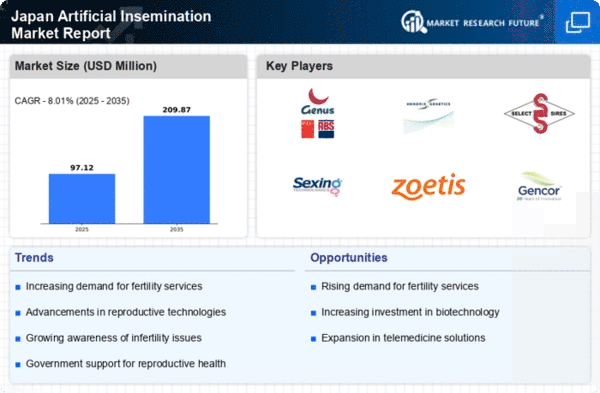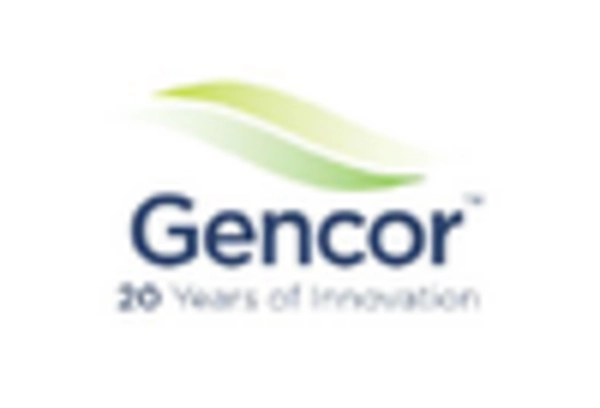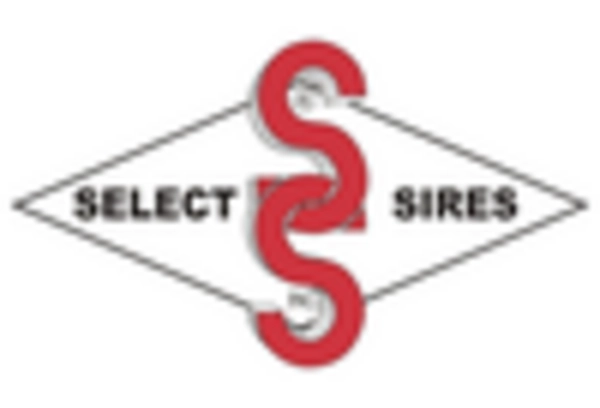Rising Infertility Rates
The increasing prevalence of infertility in Japan is a primary driver for the The increasing prevalence of infertility in Japan is a primary driver for the artificial insemination sector.. Recent statistics indicate that approximately 15% of couples in Japan experience difficulties in conceiving, which has led to a heightened demand for assisted reproductive technologies. This trend is further exacerbated by societal factors such as delayed marriage and childbearing, which contribute to declining fertility rates. As a result, the artificial insemination market is witnessing significant growth, with an estimated market value of $1.5 billion in 2025. The rising awareness of available fertility treatments is likely to propel the market further, as more individuals seek solutions to their reproductive challenges.
Government Regulations and Policies
The regulatory environment in Japan plays a crucial role in shaping the The regulatory environment in Japan plays a crucial role in shaping the artificial insemination sector.. Government policies aimed at supporting reproductive health initiatives have led to increased funding for fertility treatments and research. Recent legislative measures have focused on improving access to artificial insemination services, particularly for women facing age-related fertility issues. These supportive policies are likely to encourage more individuals to seek treatment, thereby expanding the market. Furthermore, the government is actively promoting awareness campaigns to educate the public about available options, which could result in a projected market growth of 10% over the next five years.
Cultural Shifts Towards Family Planning
Cultural attitudes in Japan are evolving, with a growing acceptance of assisted reproductive technologies. As societal norms shift, more individuals and couples are open to exploring artificial insemination as a viable option for family planning. This change is reflected in the increasing number of fertility clinics and services available across the country. The Cultural attitudes in Japan are evolving, with a growing acceptance of assisted reproductive technologies. is likely to benefit from this cultural shift, as more people recognize the importance of reproductive health. Additionally, educational campaigns aimed at destigmatizing infertility treatments are expected to further enhance market growth, potentially increasing the market size to $2 billion by 2030.
Advancements in Reproductive Technologies
Technological innovations in reproductive medicine are transforming the Technological innovations in reproductive medicine are transforming the artificial insemination sector.. Techniques such as in vitro fertilization (IVF) and intracytoplasmic sperm injection (ICSI) have become more refined, enhancing success rates for patients. The introduction of advanced cryopreservation methods allows for better preservation of gametes, which is crucial for individuals undergoing treatment. In Japan, the market for assisted reproductive technologies is projected to grow at a CAGR of 8% from 2025 to 2030. These advancements not only improve outcomes but also expand the range of options available to patients, thereby driving the growth of the artificial insemination market.
Increased Investment in Fertility Clinics
The The artificial insemination sector is experiencing a surge in investment. is experiencing a surge in investment, particularly in the establishment of fertility clinics across Japan. As demand for assisted reproductive technologies rises, private and public sectors are recognizing the potential for growth in this market. Investments are being directed towards enhancing clinic facilities, training healthcare professionals, and adopting cutting-edge technologies. This influx of capital is expected to improve service delivery and patient outcomes, making artificial insemination more accessible. The market is anticipated to reach a valuation of $1.8 billion by 2025, driven by these investments and the increasing number of clinics catering to the needs of couples seeking fertility assistance.
















